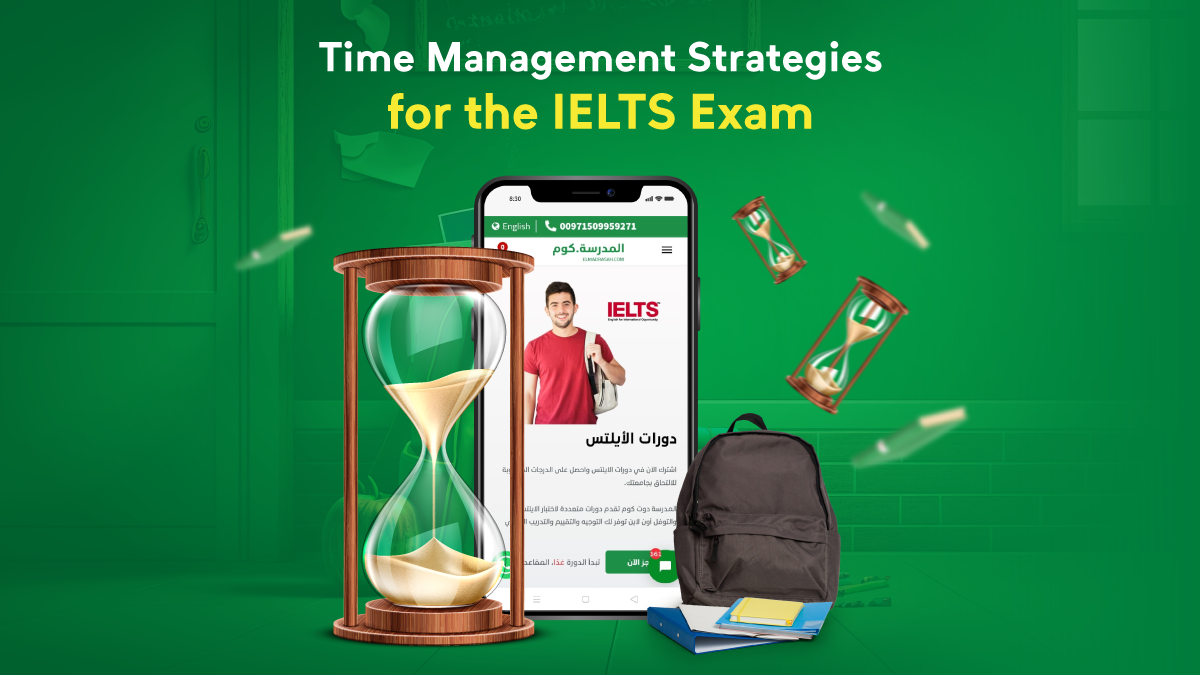
IELTS exams are widely recognized as an important benchmark for measuring proficiency in the English language. However, for many students, time pressure presents a significant challenge that can lead to stress and unnecessary mistakes. It’s essential to remember that effective time management is an integral part of success in the IELTS exam.
In this article, we will discuss useful strategies that you can use to cope with time pressure in the IELTS exam and boost your chances of achieving the score you aspire to.
The Concept of Time Pressure in the IELTS Exam
The IELTS exam, like any language test, requires not just mastery of English but also the ability to effectively manage time. One of the biggest challenges that examinees face is time pressure. This pressure arises from the need to perform a specified number of tasks within a limited timeframe.
- In the IELTS exam, time is divided among four different sections: Listening, Reading, Writing, and Speaking. Each section requires specific techniques and different skills, and the amount of time allocated for each section varies.
- The pressure escalates when examinees must perform complex tasks and answer questions within the set time.
- Dealing with time pressure in IELTS is not just about the ability to work quickly, but also about the ability to focus, maintain calm, and evenly distribute time among different tasks.
Time pressure can lead to mistakes and anxiety, but with good preparation and the right strategies, examinees can handle this pressure and perform better.
Understanding the Structure of the IELTS Exam: The First Step Towards Time Management
Deep understanding of the structure of the IELTS exam is the first step to be able to manage time effectively during the test. The exam consists of four main sections: Listening, Reading, Writing, and Speaking, each requiring different timing strategies.
- Listening: This section consists of four conversations and lectures and lasts approximately 30 minutes. The answer sheet is presented after all the listenings are finished, where students get an additional 10 minutes to transfer their answers.
- Reading: This section contains three reading texts, students need to answer a set of questions related to each text. They have 60 minutes to complete this section.
- Writing: This section consists of two tasks. Students must complete both tasks in 60 minutes. Writing task 1 takes about 20 minutes and writing task 2 takes about 40 minutes.
- Speaking: This section consists of a personal interview that lasts between 11 and 14 minutes.
Knowing this structure can help students plan the time they intend to spend in each section. It also requires understanding the kind of questions that can appear in each section, how answers can be evaluated, and how to divide time among different questions. All these factors play a decisive role in effectively managing time during the test.
Planning and Preparation: The Basis for Effective Time Management
Good planning and preparation are the two basic elements of effective time management in the IELTS exam. Once you understand the structure of the exam, you can start planning your own time management strategy.
- Plan time for each section: Divide the time available to you in each section according to the questions. For example, in the reading section, try to allocate a specific time for reading the text and answering the questions.
- Practice: The ability to estimate time accurately comes with practice. Conduct full mock tests under actual test conditions to get a clear idea of how to better distribute time.
- Prepare for different types of questions: You should be familiar with the different types of questions that you might face in each section, and how to effectively answer them in the allotted time.
- Check the answers: Allocate some time at the end of each section to review the answers. There might be simple mistakes that can be corrected and improve the overall score.
- Plan for rest: Don’t forget to plan for some time to rest and breathe. Working continuously for more than two hours can be exhausting, so take a few minutes between each section to recover.
In the end, good time management in the IELTS exam comes from meticulous preparation, good planning, and continuous practice. With every mock test you take, you will be able to gradually improve your strategies and performance.
General Tips for Handling Time Pressure During the Exam
Time management is a crucial part of success in the IELTS exam. Effectively dealing with time pressure requires planning, preparation, and strategy. Here are some general tips that can help you handle time pressure during the IELTS exam:
- Know the Test: Make sure to understand the organization of the test and how each section is evaluated. This can enable you to plan your time more effectively.
- Practice Mock Tests: Use mock tests to get a sense of how much time each section might take and how you can distribute time among questions more effectively.
- Use the Right Strategies: Each section of the IELTS exam has its own time management strategies. For example, in the reading section, it might be beneficial to read the questions first before reading the article.
- Plan Your Time: Make sure to allocate specific time for each task in the exam and stick to it. Remember to allocate some time at the end of each section to review answers.
- Learn to Handle Pressure: Performance under pressure is a skill that can be learned. Learning relaxation techniques like deep breathing and mindfulness can be beneficial for handling pressure during the exam.
- Don’t Let Difficulties Hold You Back: If you encounter a difficult question, don’t spend all your time on it. It might be better to move on to the next question and come back to the difficult one if you have time at the end.
By following these tips, you will be able to make significant progress in handling time pressure during the IELTS exam.
The Importance of Good Time Management for Success in the IELTS Exam
Time management is one of the fundamental factors to achieve success in the IELTS exam. This test requires applicants to showcase their English language skills across four different sections – Listening, Reading, Writing, and Speaking – each of which requires strategic and efficient use of time.
- In Listening and Reading, candidates must read questions and listen or read and respond within a given timeframe.
- In Writing, they must organize their thoughts and provide a well-written and accurate written response within the allocated time.
- Finally, in the Speaking section, applicants need to be able to think quickly and express their thoughts fluently and coherently.
- Good time management helps candidates ensure they complete all these tasks on time, while delivering the best possible quality.
- Under time pressure, it’s easy to become nervous or stressed, which can impact performance. But with good preparation and effective time management strategies, candidates can stay calm and in control, and deliver the best possible performance.
Therefore, time management is not just a useful skill for the IELTS exam, but a vital part of success in it.
Prepare for the IELTS Writing Test with elmadrasah.com Courses
If you are looking for effective preparation for the IELTS Writing Test and aiming for high scores, elmadrasah.com courses are an excellent choice for you. elmadrasah.com is an online educational platform that offers specialized courses for the IELTS test, aiming to equip learners with the necessary skills and strategies for exam success.
With elmadrasah.com courses, you will benefit from a range of educational advantages that will help you prepare well for the test:
Specialized Educational Content:
- elmadrasah.com courses provide well-organized specialized educational content for each section of the IELTS Writing Test.
- You will find detailed and comprehensive lessons for reading, listening, writing, and speaking, enabling you to understand the test format and handle different question types.
Practice Exercises and Mock Tests:
- You will have access to various practice exercises and mock tests that help you apply the taught concepts and improve your language proficiency.
- Regularly solving these exercises will allow you to identify strengths, weaknesses, and work on enhancing your performance.
Specialized Training:
- One of elmadrasah.com’s strengths is providing specialized training from professional and qualified instructors in English language teaching and IELTS testing.
- he trainers will offer the necessary assistance and guidance in each section of the test.
Flexible Schedule and Recorded Lessons:
- You can access elmadrasah.com lessons at your convenience.
- A flexible schedule allows you to choose study times that suit your personal schedule.
- Additionally, you can review recorded lessons if you are unable to attend live sessions.
Feedback and Support:
- You will receive direct feedback from trainers on your performance and improvements, enabling you to identify areas that need development and work on overcoming challenges.
elmadrasah.com courses target learners of all levels, whether you are a beginner or advanced. They aim to provide a comprehensive and convenient learning experience that enables you to achieve high scores in the IELTS Writing Test and successfully achieve your academic and professional goals















